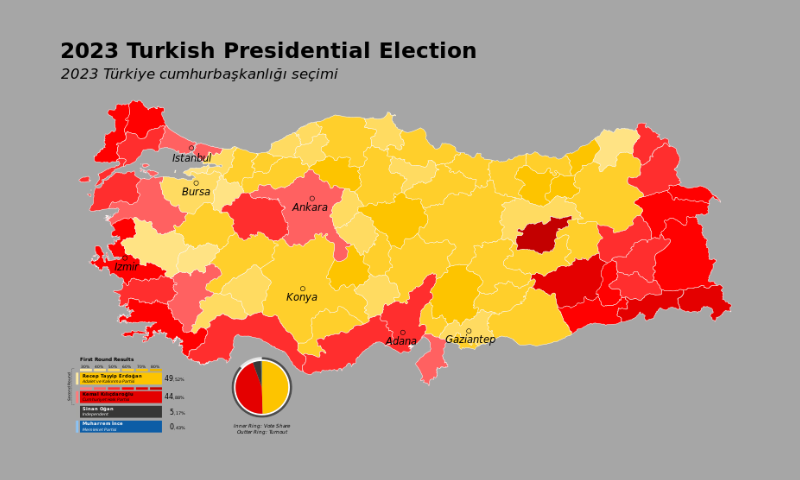Jonathan Spyer
Middle East Forum, June 2, 2023
“The Turkish leader has abandoned his commitment to Sunni uprisings because there are currently no uprisings to support.”
Sitting Turkish President Recep Tayyip Erdogan comfortably defeated opposition leader Kemal Kilicdaroglu in this week’s runoff vote in the Turkish presidential election. The AKP leader, who has ruled Turkey since 2002, secured just over 52% of the vote, to his rival’s 47%.
In more than two decades of rule, Erdogan has proved adept at neutralizing rival sources and contenders for power. He has amassed immense power in the office of the presidency. The independent judiciary, the free media, the military, rival political centers and the academic world have all been tamed and largely hollowed out, with independent voices and sources of influence replaced by structures linked to the president himself and those around him.
As such, Erdogan’s victory came as no surprise. Indeed, the unity and spirited display from the opposition coalition was the greatest surprise of the elections, showing that Turkish society remains deeply divided, even if the Islamist president is able to ensure electoral victory for himself.
What does his win mean?
So what will an additional term of office for Erdogan mean for the region? In which areas will the defeat of Kilicdaroglu’s challenge and the continued incumbency of the sitting president have an impact?


